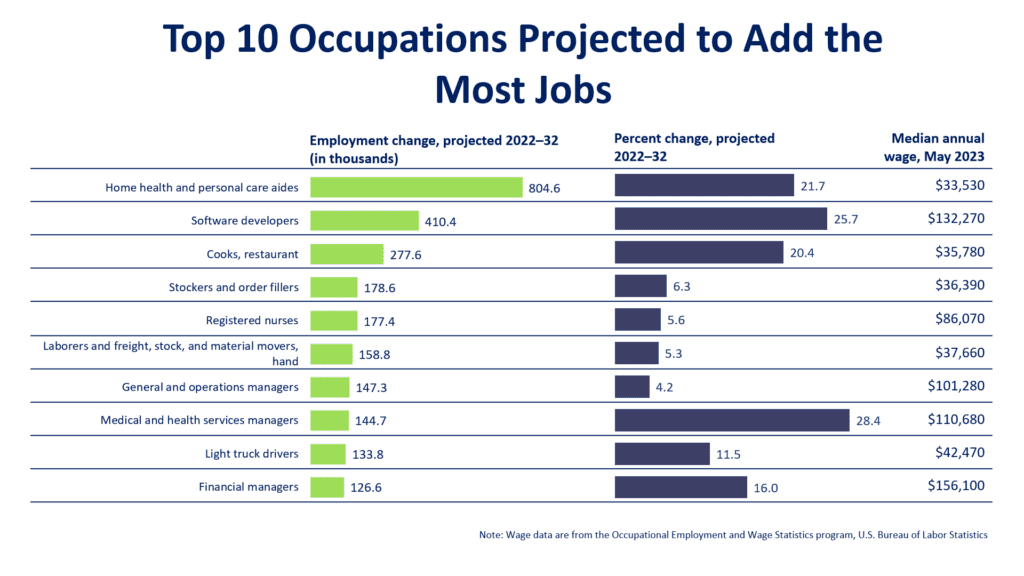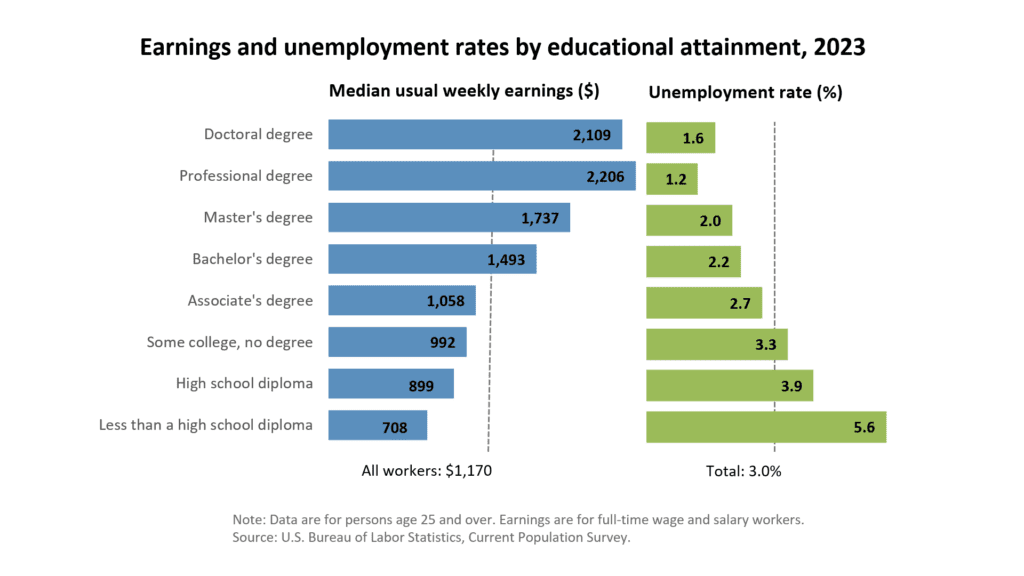When it comes to planning a career, especially in today’s rapidly changing job market, making informed choices is crucial. Recently, I had a profound conversation with my 11-year-old son, who is graduating from elementary school and preparing to enter junior high. Despite his young age, he is already contemplating his future, asking insightful questions about careers and college. This conversation inspired me to share some vital insights on how to guide children in making wise career decisions.
The Early Bird Catches the Worm: Introducing Career Concepts Early
Why Start Early?
Introducing children to career concepts early can significantly influence their future decisions. In junior high, students begin to develop their interests and strengths. This is the perfect time to start talking about careers, as it gives them ample time to explore various fields and understand what truly excites them.
Table: Developmental Stages and Career Awareness
| Age Group | Career Awareness Activities |
|---|---|
| Elementary (6-11) | Explore interests, talk about different professions |
| Junior High (12-14) | Begin researching career fields, understanding job requirements |
| High School (15-18) | Deepen knowledge in chosen fields, internships, job shadowing |
Our Conversation: A Personal Story
During our talk, my son was surprised to learn that I didn’t have a degree in engineering despite being a building engineer. I explained that my career path was shaped by a combination of opportunity, mentorship, and a proactive approach. My father’s influence and my own experiences in finance ultimately led me to run an asset management business.
This anecdote served as a gateway to discuss broader career topics, emphasizing the importance of choosing a field that is both in demand and personally fulfilling.
Key Factors in Choosing a Career
Demand and Supply: The Job Market Equation
One of the most important pieces of advice I gave my son was to choose a career with high demand and low competition. This increases the likelihood of job security and a good salary. For example, fields like healthcare, technology, and accounting are often in high demand.
Chart: Job Growth Projections (2024-2032)

Passion and Interest: The Motivating Factors
While job market trends are crucial, personal interest and passion play a significant role in career satisfaction. A job that aligns with one’s interests can lead to greater engagement and success. I encouraged my son to explore various fields within business and finance to find what genuinely excites him.
Education and Training: The Pathways to Success
Whether pursuing a traditional college degree or a vocational training program, the education path chosen should align with career goals. We discussed the pros and cons of both paths. For instance, trade schools can be a great alternative to college for fields like engineering and technical vocations, often leading to quicker and more affordable job placements.
“Education is the passport to the future, for tomorrow belongs to those who prepare for it today.” – Malcolm X
The Role of Research in Career Planning
Analyzing Job Trends
I advised my son to start researching job availability and industry trends. Websites like the Bureau of Labor Statistics and LinkedIn can provide valuable insights into job growth, required skills, and salary ranges. Understanding these trends can help in making informed decisions about which fields to pursue.
External Link: For detailed statistics and projections, visit the Bureau of Labor Statistics website.
Networking and Mentorship
Networking plays a critical role in career development. I shared my own experience of how a mentor in the operating engineering field guided me into my career. Building relationships with professionals in desired fields can provide guidance, support, and job opportunities.
Table: Benefits of Networking
| Benefit | Description |
|---|---|
| Career Guidance | Insights and advice from experienced professionals |
| Job Opportunities | Access to unadvertised job openings |
| Skill Development | Learning from others and gaining new skills |
| Industry Insights | Staying informed about industry trends and changes |
The College Debate: Is It Worth the Investment?
Evaluating the ROI of a College Degree
The debate over the value of a college degree is ongoing. I explained to my son that the return on investment (ROI) depends on the chosen field. Degrees in high-demand fields like engineering, computer science, and finance often lead to lucrative careers that can justify the cost of education.
Chart: Average Salaries by Degree

Alternatives to Traditional College
For some careers, vocational training or certifications can be more cost-effective and lead to quicker employment. For example, certifications in IT, healthcare, and skilled trades can provide specialized skills that are highly valued in the job market.
External Link: Explore vocational training options on the National Center for Education Statistics website.
Guiding Your Child to Career Success
Encouraging Exploration and Self-Discovery
Encouraging children to explore various interests and talents helps them discover their passions. Extracurricular activities, summer programs, and part-time jobs can provide practical experience and insights into different careers.
Teaching Financial Literacy
Financial literacy is an essential skill that can significantly impact career and life choices. Teaching children about budgeting, saving, investing, and understanding the value of money prepares them for financial independence.
Table: Financial Literacy Topics
| Topic | Description |
|---|---|
| Budgeting | Managing income and expenses |
| Saving | Building an emergency fund and long-term savings |
| Investing | Understanding stocks, bonds, and mutual funds |
| Credit Management | Using credit wisely and maintaining a good credit score |
Supporting Their Decisions
Ultimately, the choice of career path should be made by the child, guided by informed advice and support from parents. It is crucial to provide resources, answer questions, and encourage them to pursue their passions and interests.
Block Quote:
“The best way to predict the future is to create it.” – Peter Drucker
Empowering the Next Generation
Helping children navigate their career choices is one of the most important roles a parent can play. By starting conversations early, providing valuable insights, and encouraging informed decision-making, we can empower our children to build successful and fulfilling careers.
The conversation with my son reaffirmed the importance of being proactive and involved in guiding our children through their educational and career journeys. As parents, our goal should be to equip them with the knowledge and tools they need to make informed choices that will lead to a prosperous and satisfying career.
External Link: For more resources on career planning and education, visit CareerOneStop, a website sponsored by the U.S. Department of Labor.
By fostering an environment of exploration, learning, and support, we can help our children achieve their full potential and build a future that they are excited about.
For other great reads, check out the following:
- Embracing Faith and Education: My Journey through Annunciation Catholic School
- Unleashing the Power of LLC: A Journey to Entrepreneurial Freedom
- Harnessing the Power of Ambition: A Journey to Six Figures in Engineering
Disclaimer: The information provided in this blog post is for educational and informational purposes only and should not be construed as professional financial advice. While every effort has been made to ensure the accuracy and reliability of the content, the author assumes no responsibility for errors or omissions, or for any actions taken based on the information provided. Always consult with a qualified financial advisor, career counselor, or other professional before making any significant career or financial decisions. The experiences and opinions expressed in this blog are personal and may not be applicable to all individuals. The reader is encouraged to conduct their own research and seek professional guidance tailored to their specific circumstances.

















































